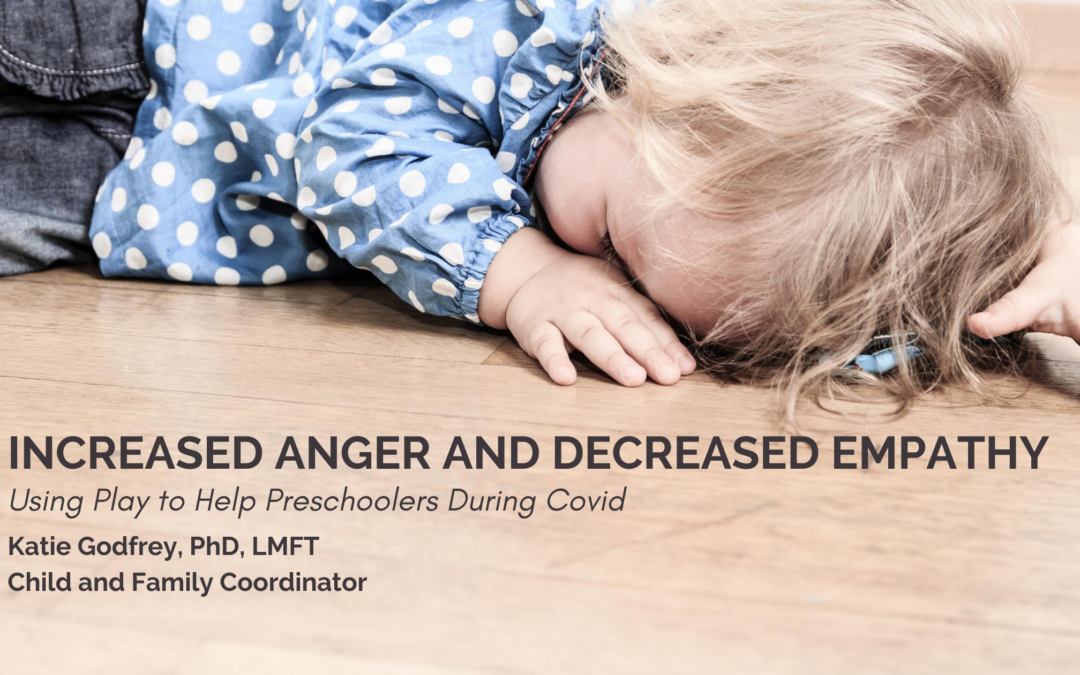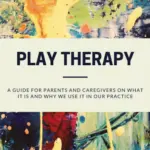
Like many of us, preschoolers’ world has been turned upside down in ways they do not understand. On top of it, preschoolers are not known for having great verbal skills. They do, however, communicate very well! Think of their outbursts as their form of communication. Right now, preschoolers are struggling and trying to let us know through tantrums, kicking, hitting, screaming, yelling, being less cooperative, and showing less empathy. Translated into English, this behavior essentially means, “Give me some attention!”.

If parents are lucky, they have someone around to help out. If not, maybe an older sibling will entertain the small child for a while, but then the sibling will get tired of doing that, and soon, that sibling will need to focus on their own schooling.
This means we now have many preschoolers who are accustomed to the structure of daycare or preschool who are now feeling neglected and bored. In preschool, the child had other children to play with, a teacher to meet their cognitive, emotional, and physical needs, and loads of distractions. They received undivided attention from caring adults. Now we have children who are bored with their toys, no playmate, and parents who are struggling to watch the child and make sure they are fed while simultaneously doing their job. This is an impossible task and no one, not child or parent, is getting their needs met.
Many families are realizing they are stuck in this dilemma with no light at the end of the tunnel. Parents cannot stop working and they are doing their best to provide care for their children. While there is truly nothing parents can do to make this situation like it was before, I do have one intervention to help make it better for your family and your little one.
Research shows that parents spending 15-20 minutes, twice a week, with their child greatly increases attachment between parent and child. Because our regular routines and structures are so different, I recommend having dedicated quality time on a daily basis. Think of it as the quality of time over the quantity of time. Doing this increases attachment between parent and child, increases empathy for parent and child, and decreases tantrums.
Here are some important guidelines for spending this time playing with your child.
- Stay away from screens, as they will not help regulate the brain in the same way. So unfortunately, playing a video game or having movie night does not count towards this goal.
You must be absolutely present with your child, so leave your phone in a different room so it will not interrupt your time.
- Imaginary play is the most effective. Blocks, dolls, puppets, stuffed animals, kitchen areas, doll houses, toy animals/dinosaurs/monsters, dress-up, cars/other vehicles are all good choices.
- Let the child lead the way. If the child wants to play with blocks, you play with blocks. Additionally, let the child dictate what to do. You may ask, “Would you like for me to do anything?” If they hand you a car, just sit with it until they tell you what to do with the car. They get to make all of the decisions, unless something is not safe.
- Narrate the play. This one feels awkward at first, but it works! “I see you putting the red block on top of the yellow block.” “You are hitting two blocks together.” By narrating what you are seeing and hearing your child do, they feel seen and validated, and attachment grows.
- In addition to narrating their actions, also note their emotions. “Oh, you seem angry!” You can also narrate the feelings of the toys. “The lion seems sad”. This helps build empathy.
- This is not a time for teaching, so do not try and teach your child anything. This means no questions like, “How many dinosaurs do you have” or “What color is the block in your hand?” This is a time for you to be quiet except for narrating and describing what you are seeing and hearing your child say, do, and feel.
- Do not ask any questions with the exception of, “what would you like for me to do with this?” if the child hands you a toy. Make sure you follow through and only do what the child tells you to do. Do not make suggestions and instead rely on narrating.



 You must be absolutely present with your child, so leave your phone in a different room so it will not interrupt your time.
You must be absolutely present with your child, so leave your phone in a different room so it will not interrupt your time. 
